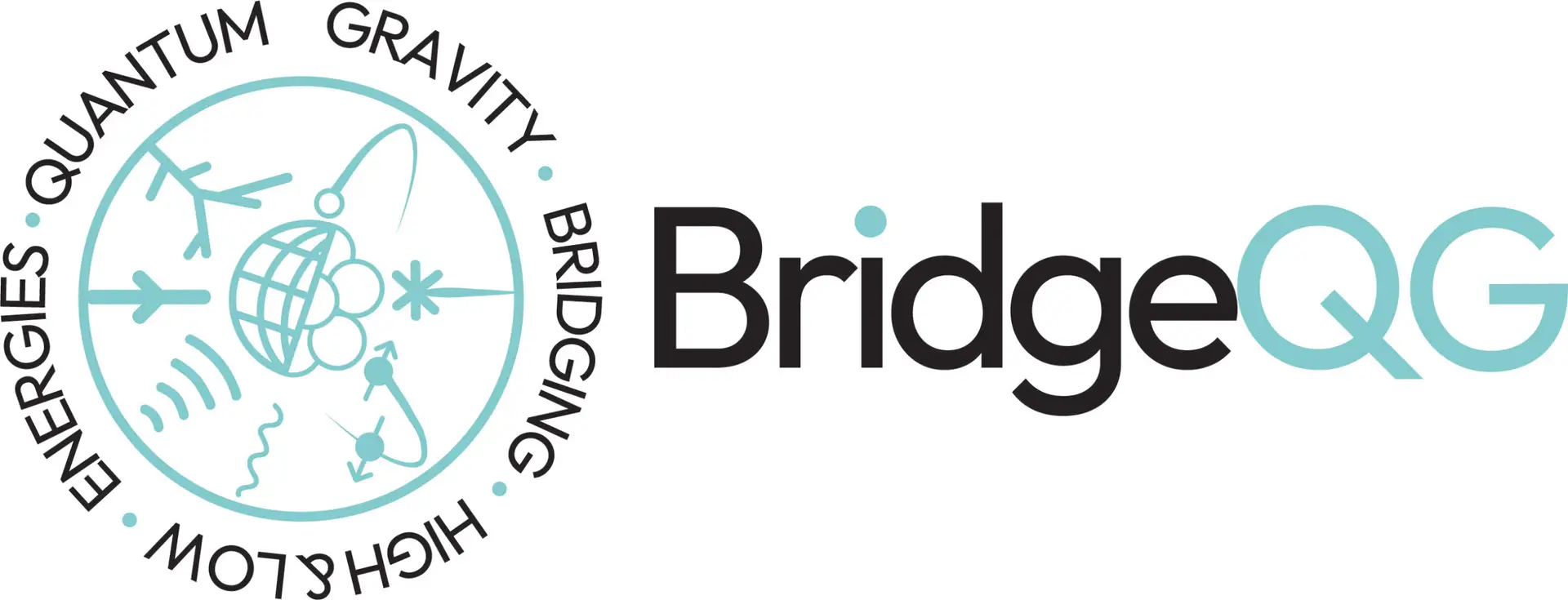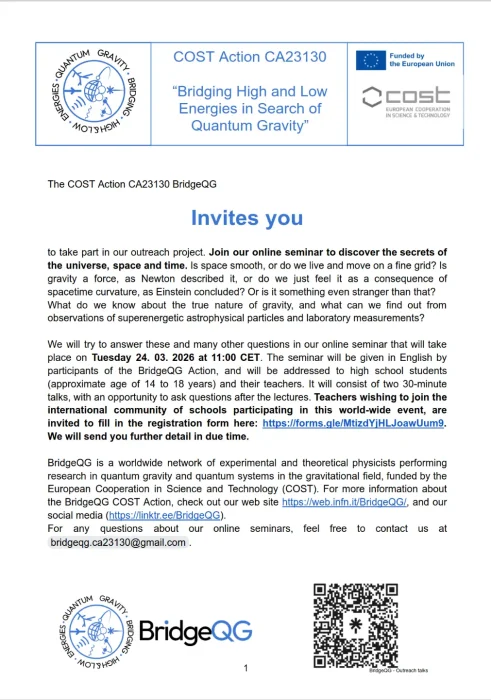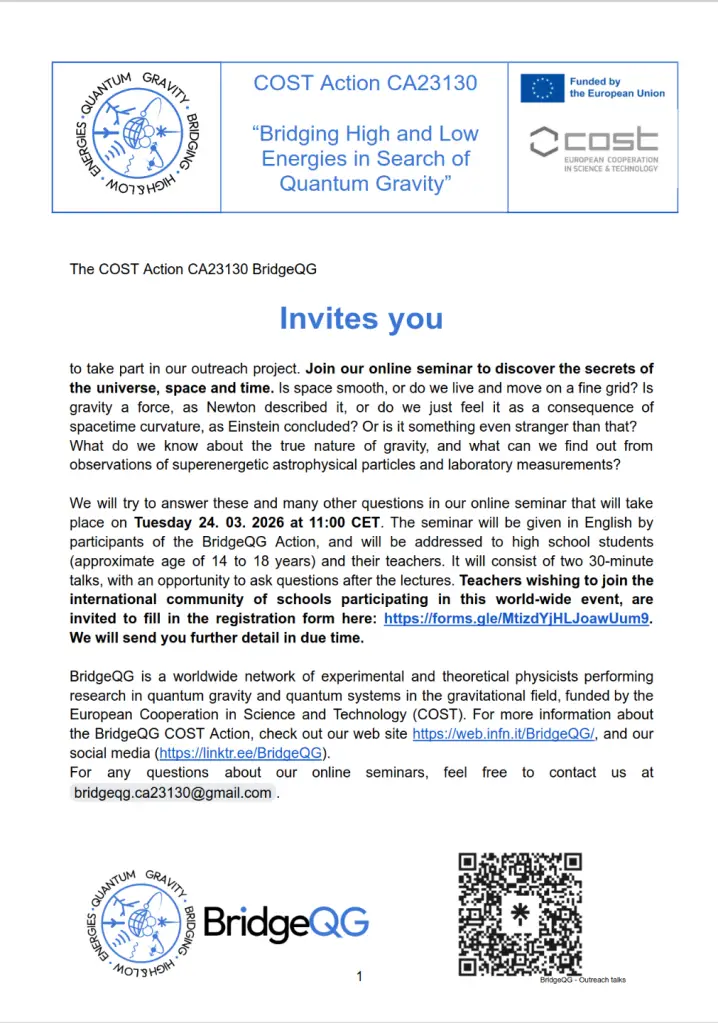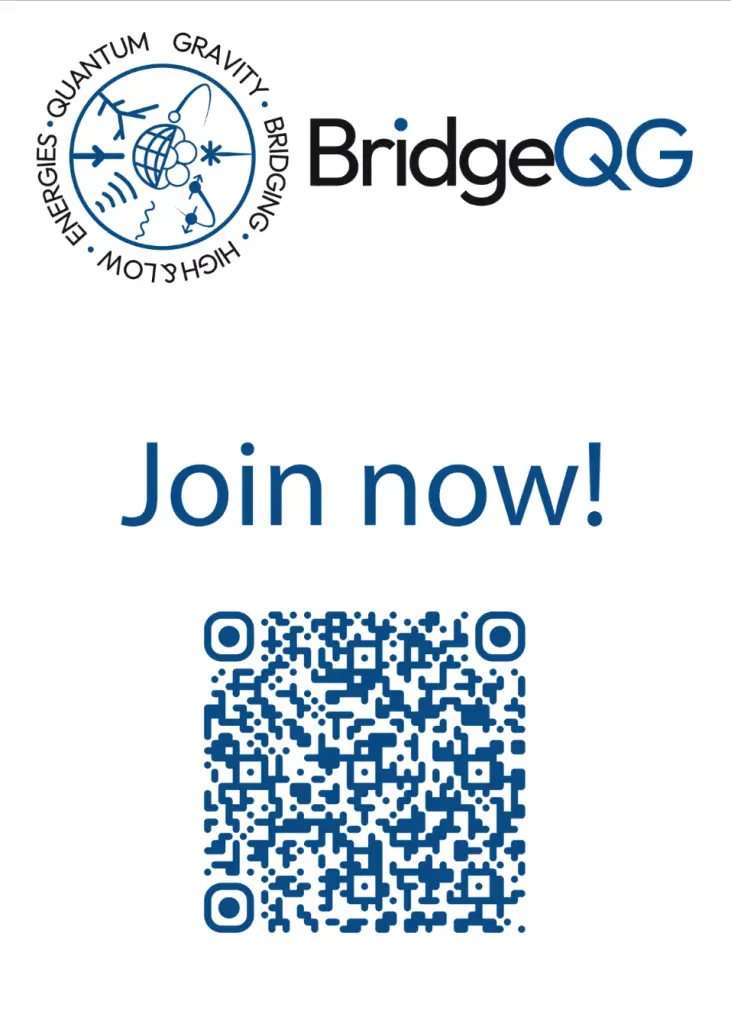BridgeQG aims to investigate the interface between high-energy quantum gravity and quantum aspects of gravity in the low-energy regime, using both theoretical and experimental tools, in order to construct a phenomenologically viable theory of quantum gravity.
Upcoming Events
Join us in the quest of unlocking the mysteries ahead
Recent Posts by the Action
STSM @ University of L’Aquila
Tomislav Terzić from the Faculty of Physics of the University of Rijeka carried out a Short-Term Scientific Mission (STSM) at the Department of Physical and Chemical Sciences of the University of L’Aquila, where he was hosted by Denise Boncioli and Francesco Salamida. The mission titled “Influence of QG phenomenological models on particle shower development” focused on comparing the Lorentz invariance violation (LIV) studies using cosmic rays and gamma rays with the goal of finding a common ground between these two cosmic messengers. Doubly special relativity (DSR) was discussed as an alternative to LIV and the possibility of testing DSR on the propagation of very high energy photons.
The team was joined by Caterina Trimarelli, a collaborator from the Gran Sasso Science Institute, to discuss a possibility of introducing LIV in the particle shower simulation software CORSIKA. Following the STSM, the team met the CORSIKA developers and agreed to collaborate on this task. Stay tuned to see the outcomes of this collaboration.
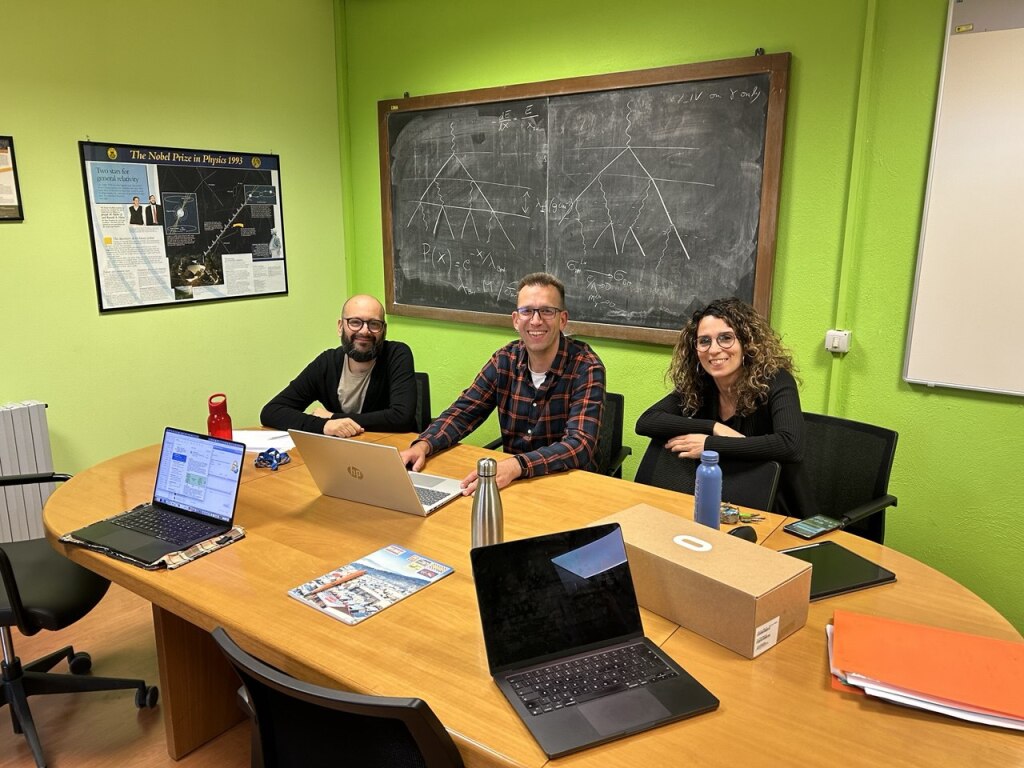
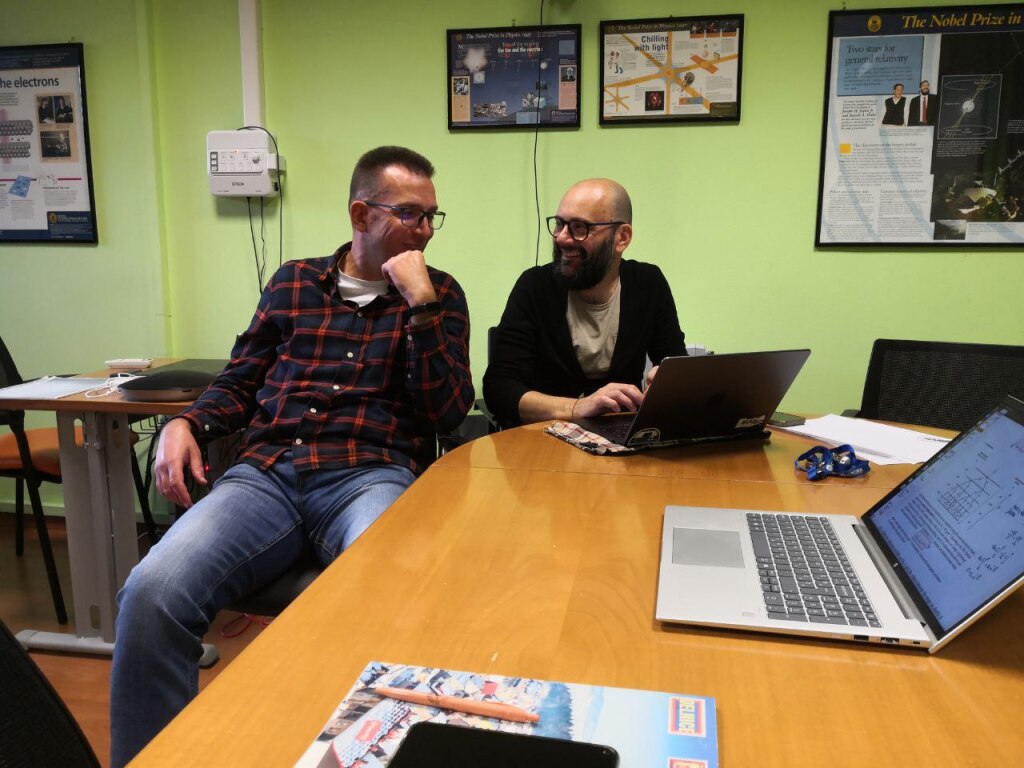
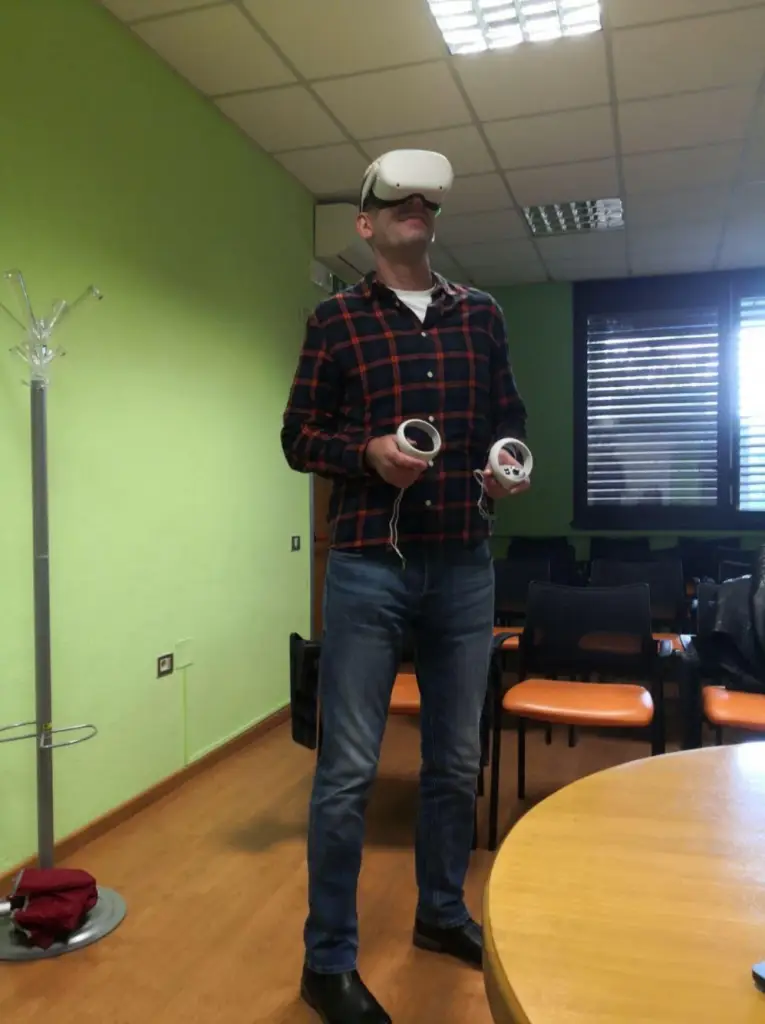
Flash Grant Call
BridgeQG is opening a flash call for Short Term Scientific Mission grants, with deadline for application on September 14th and decision notification on September 22nd. Details on the grant and how to apply can be found on the Grant Calls page .
Please note that since all activities of this grant period must end by October 31st, this will be a hard deadline to submit the required report and documents after the visit ends.
Please get in touch with me or the Grant Awarding Coordinator (Julien Bolmont) in case you have any questions.
Highlights from the BridgeQG@Paris 2025
From 7–10 July 2025, the BridgeQG 2025 conference gathered an international community at LPNHE in Paris, bringing together theorists and experimentalists working at the frontiers of quantum gravity phenomenology. Funded by the COST Association under Action CA23130, the event featured four days of intense and inspiring exchange between high‑energy and low‑energy quantum gravity researchers.
Monday July 7: The conference opened with introductory sessions by the leaders of WG1, WG2, WG3, WG5 and WG6, covering theoretical high-energy quantum gravity perspectives, experimental approaches, low-energy gravitational effects in quantum systems, precision experiments, bridging opportunities between energy scales, and dissemination plans. The opening concluded with a welcome cocktail.

Tuesday July 8: The day focused heavily on high-energy quantum gravity theory talks on probing quantum gravity at all scales, Lorentz symmetry violations, gravitational wave bounds, and black hole quantum foundations. Experimental sessions covered astroparticle investigations of Lorentz invariance violations (LIV) using gamma-ray observations and neutrino studies. Low-energy quantum-gravitational effects sessions explored the quantum Einstein equivalence principle and novel diffusion-based tests. The day was concluded with a public outreach event on gravitation by Philippe Jetzer.

Wednesday July 9: The program balanced low-energy quantum systems research (quantum-classical theories, reference frame transformations, angular momentum entanglement) with continued high-energy theory covering spacetime regularization, noncommutative spacetimes, Planck-scale deformations and cosmological effects on LIV searches. Precision experiment sessions showcased micro-mechanical oscillators for gravity exploration and underground quantum mechanics tests. The day was concluded with a seminar by Physics department seminar by the COST Action chair Giulia Gubitosi.
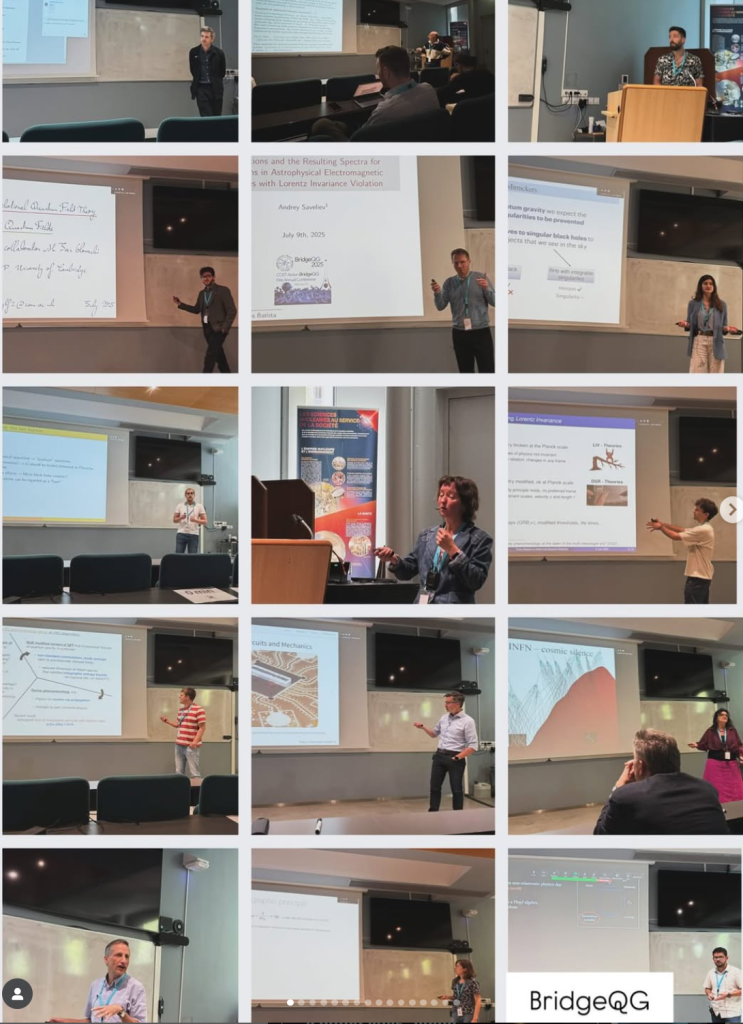
Thursday July 10: The final day emphasized connections between low and high-energy quantum gravity through talks on modified dispersion relations, generalized uncertainty principles, and quantum black hole phenomenology. High-energy theory sessions concluded with discussions of κ-Minkowski symmetries, QED, and superimposed quantum universes. The conference wrapped up with general discussions and a management committee meeting to plan future activities.
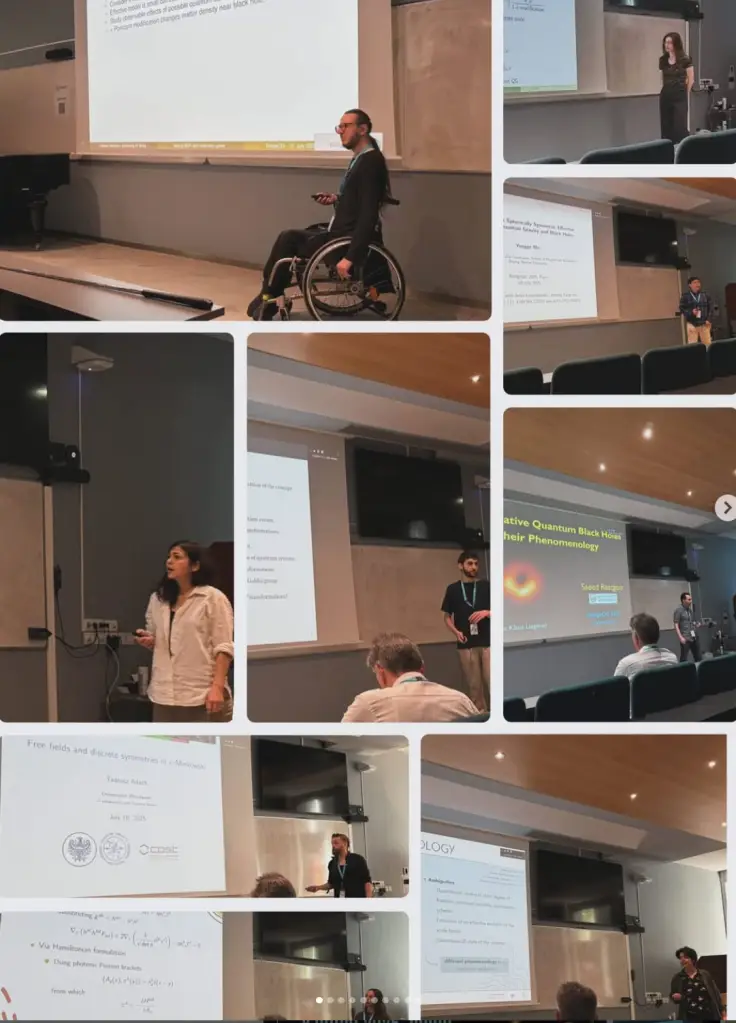
For the full schedule and the slides of the talks, please visit: https://indico.in2p3.fr/event/34939/timetable/
BridgeQG@Paris 2025

The first annual conference of the COST Action CA23130 will be held in Paris, France from 7 to 10 July 2025. It is fully funded by COST Association through COST Action CA23130.
For more information, please visit: https://indico.in2p3.fr/event/34939/
